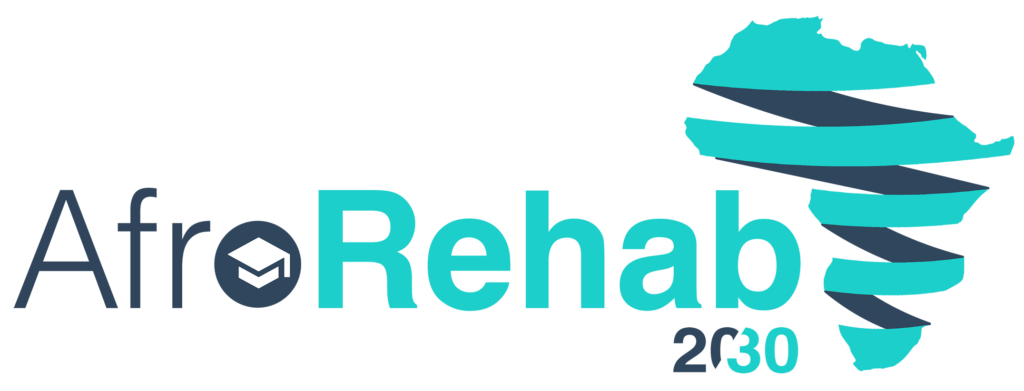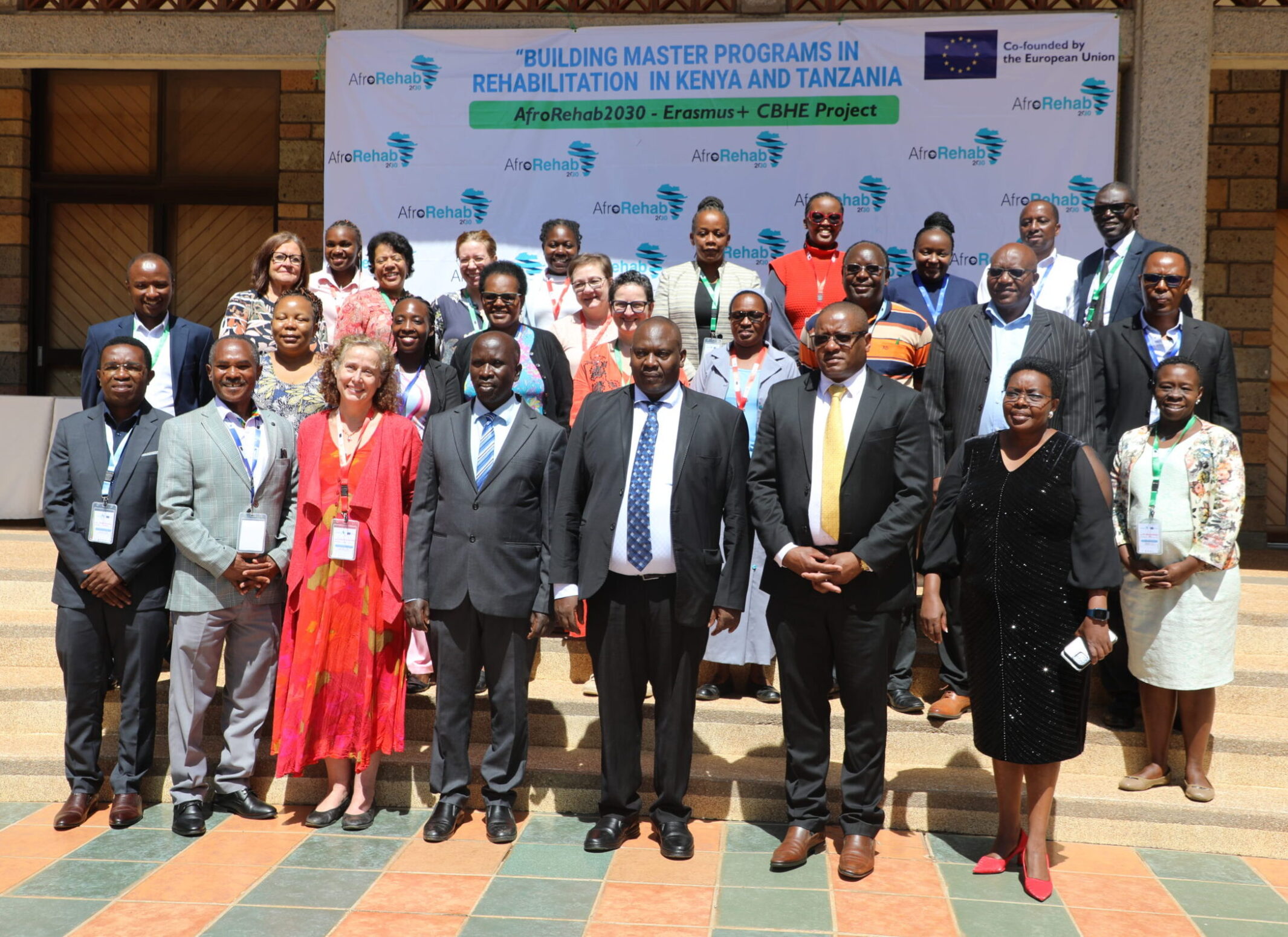
The AfroRehab2030 project is making significant gains and milestones in advancing rehabilitation science in Africa.
The project, funded by the European Union and involving six universities: JKUAT and Moi University (Kenya), Muhimbili University of Health and Allied Sciences (MUHAS) and Kilimanjaro Christian Medical University (KCMC) from Tanzania, Arcada University of Applied Sciences (Finland), and Western University of Applied Sciences (Norway), held its first Project Management Board (PMB) meeting in JKUAT, Juja, Kenya, as part of their collaborative efforts to enhance rehabilitation education, research, and practice. The weeklong workshop and semi-annual Project Management Board Meeting at JKUAT, Kenya, starting March 24, 2025 focused on refining the curriculum content, covering key areas, such as Physiotherapy, Occupational Therapy, Optometry, Audiology, Prosthetics & Orthotics, Orthotics, and Speech Language Therapy.
A key highlight of the workshop was the launch of the AfroRehab2030 website on Tuesday, March 27, 2025, during a vibrant ceremony officiated by JKUAT management. Prof. Graziella Van Den Berg from Western Norway University, the lead of the AfroRehab2030 project, emphasized the initiative’s transformative impact, noting that the website launch marks a crucial milestone in fostering collaboration, knowledge exchange, and long-term sustainability.
She commended the consortium’s commitment to develop East Africa’s first Master’s program in Rehabilitation, highlighting its role in addressing critical gaps in the field. She acknowledged EU’s support in strengthening academic and clinical capacities, ensuring that professionals across the region are well-equipped to deliver world-class rehabilitation services.
Speaking on behalf of JKUAT Vice Chancellor, Prof. Victoria Wambui Ngumi, Dr. Joseph Sang hailed the launch as a great milestone for the project, noting that the platform will serve as a hub for collaboration, information sharing, and long-term sustainability beyond the implementation of the region’s first-ever Master’s program in Rehabilitation. “As a university that believes in technology-driven transformation, we recognize the critical role that rehabilitation sciences plays in shaping productivity, ensuring inclusivity and empowering individuals with disabilities to live full, independent lives. The initiative, therefore, calls for bold leadership, strategic action, and cross-sector partnerships to ensure that rehabilitation is accessible, affordable, effective, and sustainable. The work we are undertaking through AfroRehab2030 and related projects — directly contributes to this global vision. We are not just talking about change; we are driving it,” stated Prof. Ngumi.
Another key highlight of the workshop was a visit to the Kenya Institute of Special Education (KISE), a government facility providing highly subsidized rehabilitation services for both adults and children.
The tour of departments such as hydrotherapy, visual impairment, and hearing impairment Showcased Kenya’s progress in empowering individuals in need of rehabilitation—whether for recovery (such as stroke) or to support children’s early stages of development.

